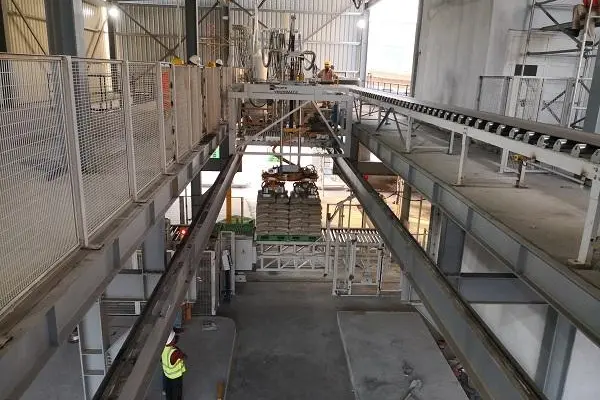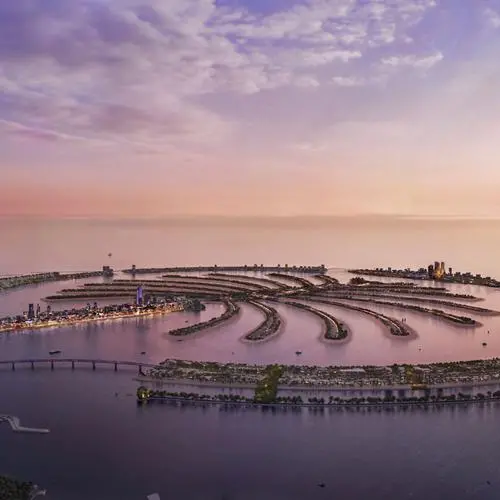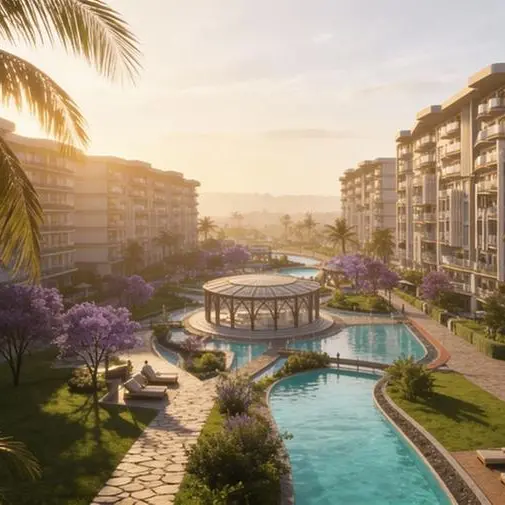PHOTO
Oman's Raysut Cement is planning a five-fold increase in production capacity to grow its business within and outside the Sultanate, the company's Chief Executive Officer Joey Ghose said.
The MSM-listed cement manufacturer is aiming to increase its production capacity from the existing 5-plus metric tonnes per annum (MTPA) to 26 MTPA through a mix of joint ventures, acquisitions and greenfield projects, Ghose said during a conference call on Monday.
He said the capital expenditure for the next two years would be around 25-30 million Omani Riyals ($65-$78 million) but did not elaborate on the specific projects or the timeframe for achieving the five-fold increase.
Ghose said the economic environment, which had been impacted by COVID-19, is expected to return to normal over the next three months, adding that the company is keen to move forward with its expansion plans.
The company plans to add 16 MTPA in East Africa and 1 MTPA in Yemen, according to his presentation. Raysut currently has a 1.4 MTPA plant in Ras Al Khaimah, UAE through its subsidiary Pioneer Cement and a 4 MTPA plant in Oman. The company has acquired a 75 percent stake in a cement terminal in Thilafushi, Maldives; a 1 million MTPA milling unit and service station costing $30 million in Duqm; a 1.2 million MTPA integrated cement plant in Georgia valued at $200 million and a $40 million cement grinding plant in Berbera, Somaliland.
Aggressive expansion plans
Commenting on the business case for expansion into East Africa despite COVID-19, Ghose said, "East Africa is a booming market for the next 50 years, and we expect to become a very strong player there. Last year, we sold 1.2 million tonnes in East Africa. We have a market share of 90 percent in Zanzibar and 45 percent in Madagascar. The margins in new markets are nearly twice that of Oman. The percentage ...is 50 percent per tonne compared to 12 percent in Oman. We have a cost advantage of nearly 30 percent over all other players in the East African market."
He also disclosed that the company is looking to set up grinding units in Madagascar to service all the Indian Ocean Islands "at a very competitive price."
Ghose said exports from the 3 million MTPA Salalah plant is expected to contribute more than 50 percent of the sales going forward. "Exports to Madagascar, Reunion islands, Seychelles, Mauritius, Maldives, Mayotte, Camaros and Zanzibar will provide us with the volume that we need for our Salalah plant as the demand now is less than half a million tonnes," he said.
"We are in the process of concluding the takeover of a cement terminal in the Maldives from LafargeHolcim Maldives and should be closing the deal in 10 days," he said without disclosing the value of the deal.
"In Somalia, we are the largest suppliers in North and South Somalia. We supply 80,000 tonnes of bulk cement to Somalia each month, and we hope to convert that into locally manufactured cement by using clinker from Salalah and adding 35-40 per cent local content. We are planning a grinding facility in Somalia with an option to convert it to an integrated unit," he said.
Work on a 1.2 million MTPA fully integrated plant in Tbilisi, Georgia is expected to start once the COVID-19 lockdown is lifted.
"At present, the Georgian market is being serviced by imports from Azerbaijan, Turkmenistan, Turkey and Iran. The government is keen on supporting us, and these imports will stop once the plant is operational," he said, adding that the plant is scheduled to be commissioned by 2022.
Locally, he said the Duqm plant is expected to become operational by the year-end, while sales would be driven by the new projects awarded in the Dhofar region and the upcoming projects in Duqm to drive sales. The company has invested around $30 million in a new grinding unit at the Port of Duqm with a capacity of around one million tonnes per annum.
"The plant should start operations by December 2020", he said.
Cost reduction initiatives
Elaborating on the cost reduction measures, Ghose said he is targeting 10 percent cost reduction in 2020 and 30 percent in 2021.
"The waste heat recovery system expected to be onstream in early 2022 will reduce energy costs by 27 percent. A clinker cooler improvement project will increase production by 400 tonnes a day reducing our unit cost by eight percent. We are looking at alternate fuels to mitigate the impact of gas price fluctuations and install a solar power plant that will reduce electricity consumption during the day by 6 MW or [equivalent to] 11 percent of our daily requirement."
He admitted that the cost reduction initiatives were delayed by four months due to COVID-19, noting that further steps being taken to achieve lower costs include introducing new materials such as oxide, using iron ore of a higher quality and automation.
Ghose said he expects the second quarter to be worse than the first quarter due to COVID-19 but is slightly optimistic about the final two quarters. "We have lined up shipments for the early part of July. I am optimistic 2021 will be a bounce-back year. We will see returns from new projects commissioned. We want to become a 230 million Omani riyals ($597 million) turnover company by the year 2023", he said.
Total consolidated revenue for the full year 2019 was 84.1 million riyals ($219 million) in 2019 compared to 91 million riyals ($237 million) in 2018. Earnings before interest, depreciation and taxes stood at 14.2 million riyals ($37 million) in 2019 compared to 10.1 million riyals ($26 million) in 2018.
(Reporting by Sowmya Sundar; Editing by Anoop Menon)
(anoop.menon@refinitiv.com)
#Oman #RaysutCement #EastAfrica #Salalah #COVID19 #Expansion
Disclaimer: This article is provided for informational purposes only. The content does not provide tax, legal or investment advice or opinion regarding the suitability, value or profitability of any particular security, portfolio or investment strategy. Read our full disclaimer policy here.
© ZAWYA 2020





















